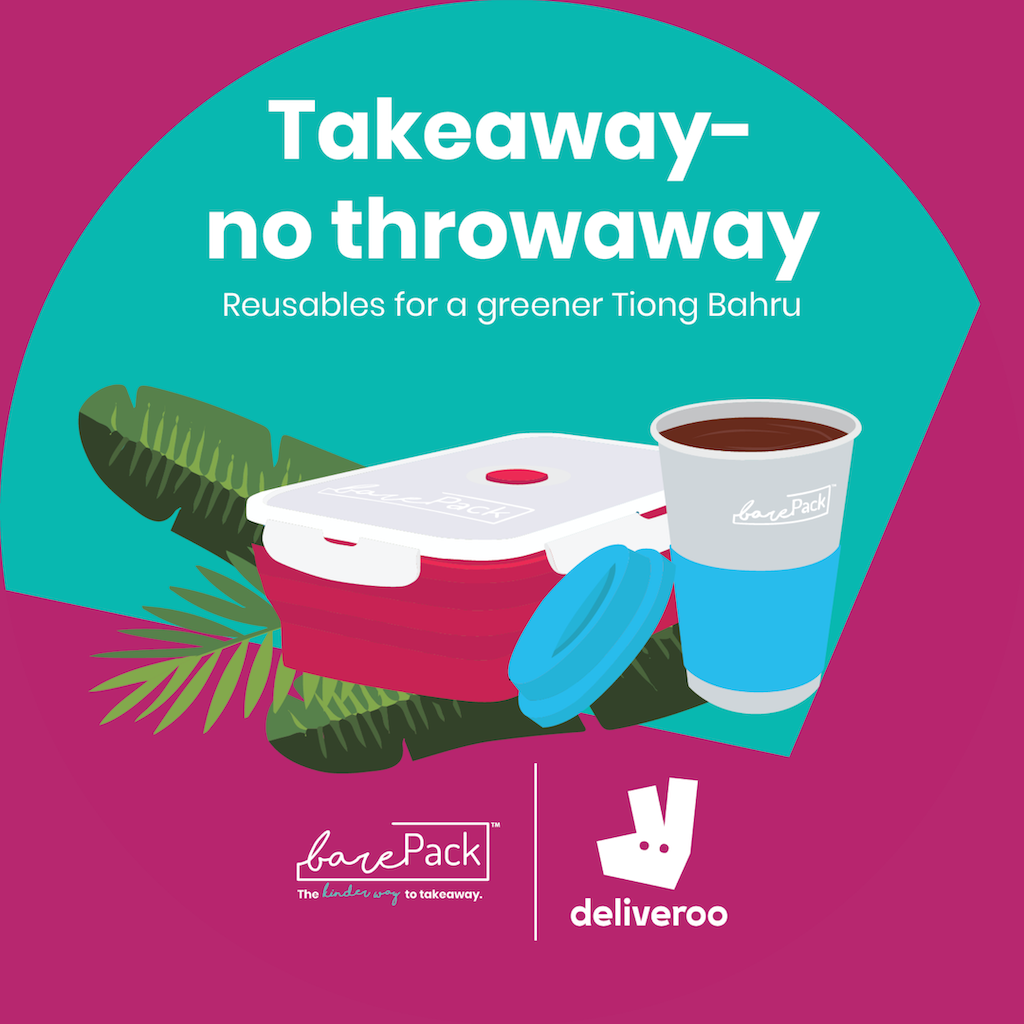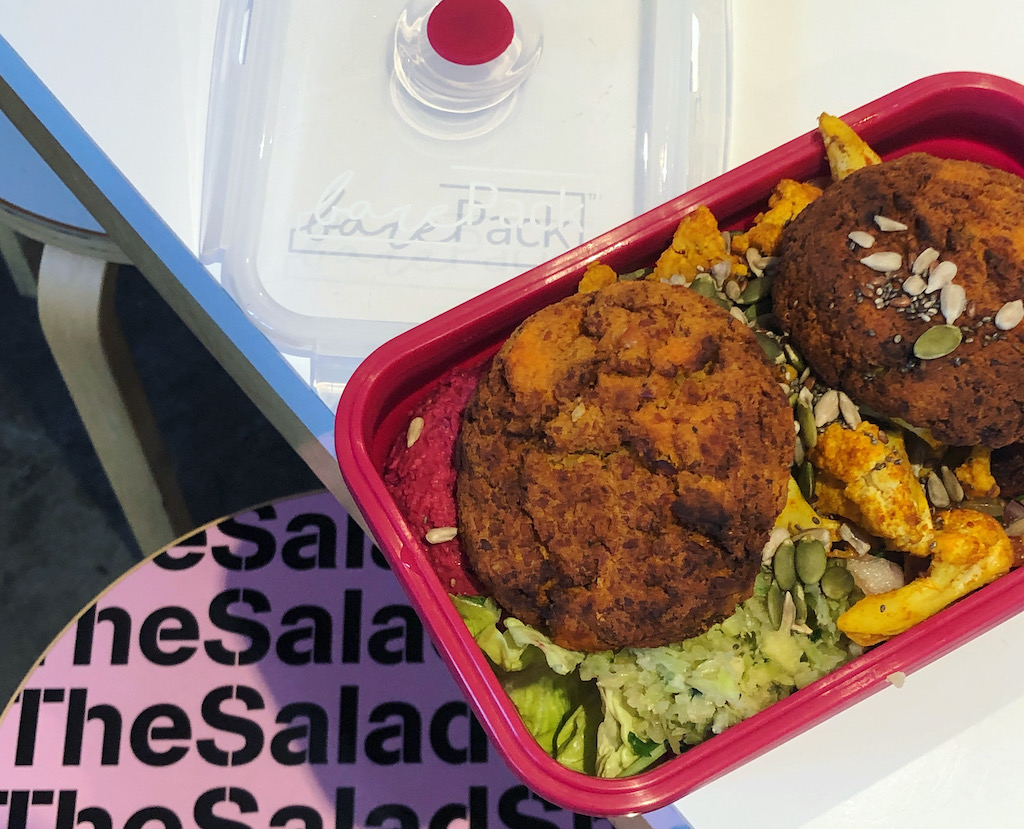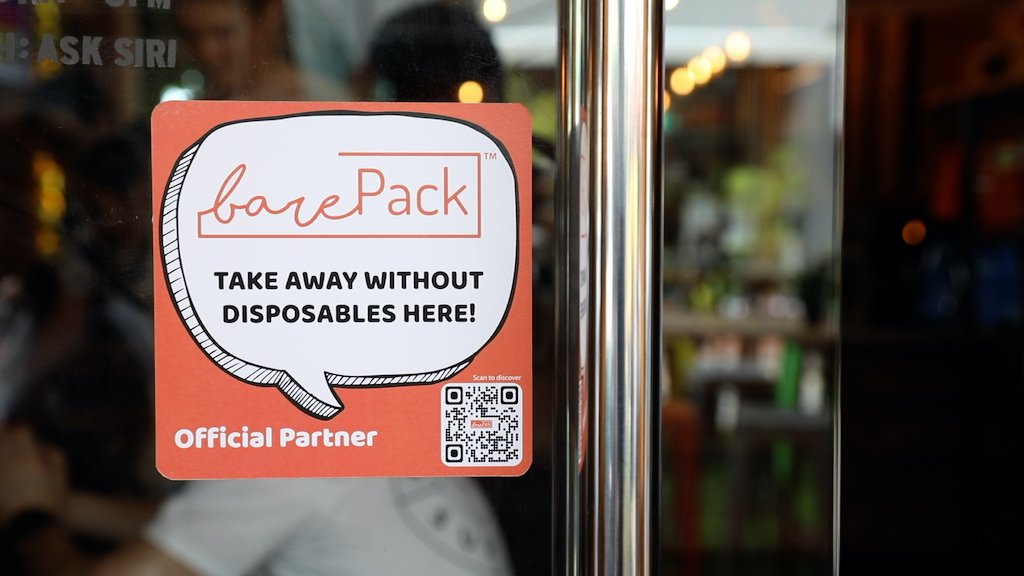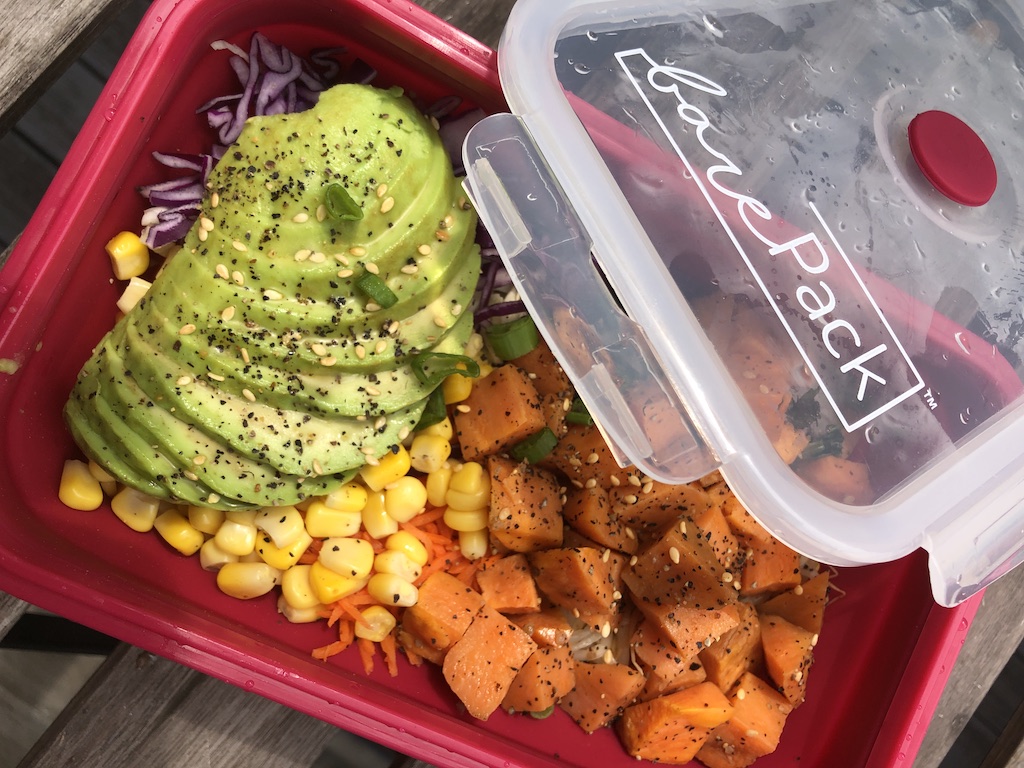7 Mins Read
Founded just last year, barePack is a Singaporean startup that offers a convenient solution to make takeaway orders more sustainable and fight the mounting waste crisis caused by disposables. It is touted as the “world’s first unlimited returnable container subscription platform”, which allows its members to connect with reusable-friendly vendors for discounts and rewards. We spoke to barePack co-founder and CEO Roxane Uzureau about how exactly its circular business model works, what makes barePack different and what it’s like to now be partnered up with giant delivery operators.
After first launching with Foodpanda Singapore a few months ago to bring reusable container options to customers in the city-state, barePack is now also collaborating with fellow delivery operator giant Deliveroo. This partnership will see barePack’s new membership-based feature debut on Deliveroo’s platform via a deposit system, giving customers a “barePack” option at the top of their menu where they can select the brand’s reusable containers according to their order. By doing so, the company hopes to cut down on takeaway waste, which can reduce carbon emissions by as much as 90% compared to disposable alternatives.

GQ: On the delivery scene, you first started with Foodpanda, right? How did you end up choosing them as the first partner?
Foodpanda has shown us ongoing support from the start. We all know that we are trying to do is move mountains, and as such, Foodpanda being the first to implement this solution for online third party delivery in Southeast Asia and our continued discussions for how to improve the system illustrate their commitment as a partner company. We are both grateful and excited to be working with them on new upcoming campaigns.
GQ: Can you share more about the barePack and about the Deliveroo partnership? How does it works?
RU: Yes, sure! First you download our app on the Apple Store or Google Play. This is to enable the requesting of containers for use for delivery when available (users must find the same restaurant on the barePack and generate a one time passcode (aka OTP) that matches their online food order to the barePack network. The full how to instructions are available here.
For Foodpanda there is no option to use the deposit system. This is unique to Deliveroo and we developed this feature for them. It was quite an investment on our behalf and a lot of work working under a tight timeline. Our amazing project manager Danny is to thank largely for pushing this through.
GQ: How do you track which container goes to which customer? Is it RFID codes?
RU: For as long as we are able to, we would rather not use RFID because we think simpler, more affordable tech is all we need. We use QR codes that customers can scan at the restaurants when they want to collect. Similar to how you scan a restaurant’s menu today, pick what you want, and pay direct via your phone and then simply show the order receipt to collect. Right? It’s the same! You walk in, scan the QR code and pick your containers, then show the confirmation screen to the restaurant to confirm they can use these for their purchase.
We don’t require any POS integration and never take sale commissions so we are just a super simple system a restaurant can implement. The scanning records where containers are picked up or returned to.
GQ: You say users can return a container to a drop-off point and get a refund, but how does it work? Is it through digital payment? Or does the drop-off point establishment give them cash?
RU: Again, we want to keep restaurant financial software out of the equation – it’s simpler for them.
The customer downloads our app and creates a visitor account, meaning they create an account but don’t buy a membership. They are then prompted to enter the details of their order with proof, and to then return the containers to a restaurant. After we verify that the return matches the order, we issue a refund to the customer online, within 78 hours (we are a small team working at full speed but we are still human!). If the customer enjoyed the experience, they can ask to transfer to become a member.
GQ: Are there other similar initiatives in Singapore?
RU: There are currently no other initiatives like us that I know of that cover our scope, but there are some reusable packaging groceries, for example getting organic foods in reusable boxes instead of cartons. Also, tingkats is a local traditional way of delivering and carrying food whereby metal tingkat containers (akin to India’s tiffin system) are stacked and customers can order recurring meal plans that are delivered to their door, though you have to buy a week or more’s worth of meals in advance. For convenience’s sake, a lot of these services switched to single-use disposable packaging, despite being able to collect the tinkgats on the next order.
GQ: How does barePack compare to other similar reusable food and drink container alternatives?
RU: barePack is local, we are Singapore made and our support network is local, which is something we are very proud of. We have a variety of local and Western-style restaurants, and we work with Foodpanda and now Deliveroo, as well as direct restaurant platforms. We take pride in building relationships with our restaurants and supporting them. We are completely free to implement for takeaway. We don’t ask that customers make repeat orders at partners to return our FlexBoxes and KindCups, and they can even request home collection when they reach 5 containers.
Another thing that makes us different is that we don’t charge customers after a week for not returning a FlexBox or KindCup… People hate being pressed for time in an already very stressful environment, so we feel those type of fees defeat the purpose. We want to make reuse easy and simple, not a pain in the bum that costs you a lot of money, else how will we convince people to rewire their brain towards making green habits a daily practice? 😉
We are also very involved with our community. For example, we take part in local initiatives such as the upcoming Say YES to Waste Less campaign, a campaign by the National Environment Agency. You will be able to find out more about that on their website soon.

GQ: How many restaurants are on Singapore Deliveroo and how many are working with barePack? Is this more of a trial? Or are you expecting more restaurants to come onboard soon?
RU: I cannot answer for Deliveroo but at the moment, we have 8 partner locations in Tiong Bahru because the company wanted to focus on that neighbourhood in Singapore specifically. It’s a great way to test our new feature developed specifically for them!
GQ: You mentioned this was a special collaboration with Deliveroo, how is it different than your existing service?
RU: Deliveroo worried that not everyone would be a member in order to test the service so we had to develop a deposit system for non-members. You can borrow a FlexBox for $6 which barePack will refund when you return it using the barePack App at one of our partnering restaurants. Only members can request for containers to be picked up from home.
GQ:What are some of the biggest challenges with launching this system for the restaurants?
RU: It’s brand new, no one has done this before and so it takes time to build trust with restaurants. It does not happen overnight, and there is always a little fear both of FOMO (you don’t want to be the only one not joining in on a good initiative) but also they are very kiasu (a Singaporean term meaning “very cautious”). They have not done this before so they worry: How will it affect operations? What if the staff forgets to use a box? Or what if the food doesn’t fit? And so on…We have to be supportive, and we are always ready to help and listen and find solutions. In the end, they are just people who care about their business but want to do something good and we always find common ground to discuss and support each other. We are very grateful for all the partners we have.

GQ: We noticed that some of the food on Deliveroo, for example, doesn’t suit barePack containers like pizza. Any plans on that front, maybe a reusable pizza box?
RU: For now, no. We need to start simple and use a one-size-fits-most in order to achieve economies of scale. That doesn’t mean we don’t have plans around this in the future.
GQ: Do customers return containers regularly? Have you encountered any issues and challenges on that side?
RU: So far, we have no issues on this front. After a member borrows 5 containers, which show up in their inventory, they cannot borrow any more without returning some. It makes no sense to be a member, pay a fee and not use the service so they want to return them for sure! Some customers want more than 5 containers at a time. To keep the system working, we have to limit it so we tell them they can instead choose to create a second membership.
Follow barePack on Instagram and Facebook, and make sure to visit their website for a full list of their restaurant and delivery partners.
All images courtesy of barePack.





